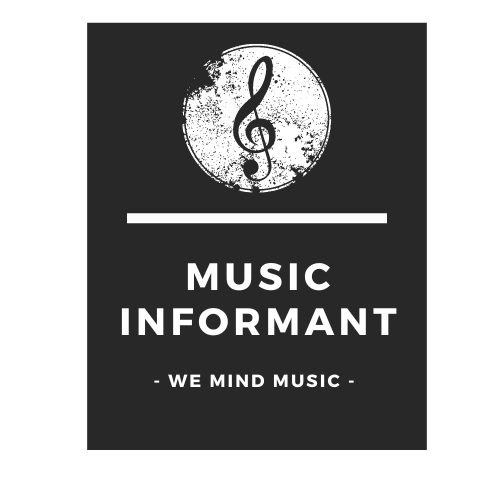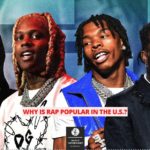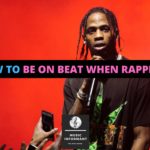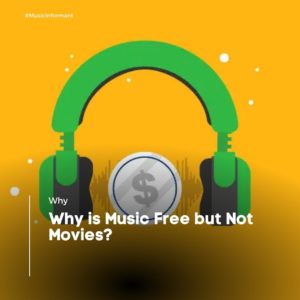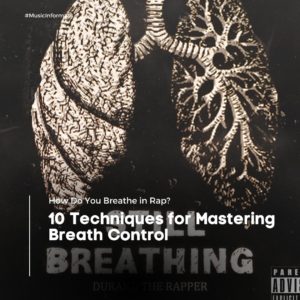
Was Eazy-E of N.W.A. a ‘true gangsta’: He went from a drug dealer to a rapper. He was a member of N.W.A., which sold millions of records. Involved in one of the most famous court cases in music history, the “Parents Music Resource Center,” or PMRC, hearings. Married Tomica Woods-Wright (Eazy’s first wife), whom he divorced in 1993 after having two kids, Eric and Regina. Was estranged until Eazy-E passed away. He wanted his (then) 17-year-old daughter Regina to inherit his 50% stake in Ruthless Records.
So… Was Eazy-E of N.W.A. a ‘true gangsta’?
When Eazy-E passed on March 26, 1995, there was a massive outpouring of grief from his fans. This is understandable on some level– he’d been part of a hugely successful rap group.
He had been putting out records for over ten years at the time. But it would help if you remembered that N.W.A. (the infamous rap group featured Eazy-E, Dr. Dre, Ice Cube, MC Ren, and D.J. Yella). Came out during gangsta rap’s infancy in the late 1980s.
Being considered a “gangster” at that point was being into the ghetto culture. Which was shorthand for gang culture since most people didn’t live in ghettos and thus knew little about it Or mistreating women and owning guns. One of their biggest hits, ‘F—Tha Police,’ is them threatening police violence against those who got in their way with lines such as “…all you pigs / Drop your guns / What the f— are you thinking? / When will you realize that I ain’t the one?” No one was rushing to get into Eazy’s good graces!
10 Reasons why Eazy-E of N.W.A. is a ‘true gangsta’?

- He was gangsta in the way he conducted himself.
- He didn’t care about what people thought of him.
- Despite what others thought of him, he was always true to himself and his values.
- He had a lot of money and power. Still, he didn’t flaunt it or use it as a weapon against other people—he just used it to enjoy life more fully and help those who needed it most (like AIDS patients).
- He was a great rapper who rapped about real-life issues around him in his neighborhood (drugs and violence).
- He was honest with the world, telling them exactly how he felt through his music and lyrics.
- He never let anyone tell him what to do or say. Did whatever he wanted whenever he wanted because that made him genuinely accessible inside (even if sometimes it got him into trouble with the law).
- He was fearless when facing off against police officers trying to arrest him for smoking marijuana in public places like airports; this made him even more.
- He wrote lyrics that reflected real-life experiences in Compton and Los Angeles at the time, including harsh and violent ones. For example:
A: “To all my homies locked down in them dungeons” (“Boyz-n-the-Hood”)
B: “A gang member with a automatic weapon/Cocked and ready to blow/And he don’t give a f*** who standing next to him” (“Straight Outta Compton”)
- He played the role of a gangster in many of his songs, including “Boyz-n-the-Hood” and “Fuck tha Police.”
He was gangsta in the way he conducted himself:
We will explore whether or not Eazy-E was a ‘true gangsta.’ Based on the fact that he was a member of N.W.A. and the song “F*** Tha Police,” which is widely considered one of the most influential rap songs in history.
We will start by looking at what it means to be a ‘true gangsta.’ A ‘true gangsta’ has killed someone and been involved in illegal activity for their entire life. They also must have been involved with gangs before they were born. They have to be able to handle themselves in any situation and not care what others think about them or say about them.
We will then look at how Eazy-E lived his life and whether or not he was indeed a ‘true gangsta.’ We will also look at how much of an impact his music had on society today and if it helped shape rap music into what it is today.
He didn’t care about what people thought of him:
Known for his extravagant lifestyle, including wearing flashy jewelry and driving around in expensive cars. He also had a lot of sex with women, which was seen as something that wasn’t appropriate for men in the 1980s. However, Eazy-E didn’t care about how people viewed him; he just wanted to be himself and live his life on his terms.
Another reason why Eazy-E was considered a ‘true gangsta’ is because he was very outspoken about his beliefs and opinions. Regarding race relations, drugs, politics, and music in general. He didn’t sugarcoat anything for anyone. If he had something to say about something, he said it without holding back or thinking twice about what others would think or say about it too! He firmly believed in standing up for what you believe in no matter what others think or say about it.”
He was always true to himself and his values, despite what others thought of him for it:
While the rest of N.W.A. seemed to be in it for the money and the fame. Eazy-E always seemed to have a genuine love for hip-hop music and an appreciation for how he could use it to help others. He was a gifted lyricist who used his music to speak about important issues affecting people of color at that time. Things like police brutality, racism, and gang violence. And he did so in a way that was both relatable and empowering for those struggling with these issues themselves. (see: “Fuck tha Police”).
He also worked hard to advocate for children growing up in violent neighborhoods. By founding Ruthless Records (which would later become Priority Records). This gave many young artists their first chance at making records outside of gang life—including 2Pac, Snoop Dogg, E-40, The Dogg Pound Boys (Kurupt & Daz Dillinger), The Dogg Pound Girls (Soopafly’s wife), and many more.”
He had a lot of money and power. Still, he didn’t flaunt it or use it as a weapon against other people—he just used it to enjoy life more fully and help those who needed it most (like AIDS patients):
Eazy-E of N.W.A. was a ‘true gangsta’ because he had a lot of money and power. Still, he didn’t flaunt it or use it as a weapon against other people—he just used it to enjoy life more fully and help those who needed it most (like AIDS patients).
He was born Eric Wright in Compton, CA, on September 7, 1963. He grew up without his father, who was killed when Eric was five. His mother raised him with help from her family and friends in the neighborhood.
As a young adult, Eric became involved with drugs and crime. But when his friend MC Ren convinced him to start making music with some other guys from their neighborhood. Eric decided to turn his life around and dedicate himself to music instead of crime.
They formed N.W.A., which stands for ‘Niggaz With Attitude.’
The group quickly rose to fame after releasing their first album in 1988; by 1991, they were one of the most popular groups in America. And then everything changed when their second album came out that same year: It featured songs about gangs and violence that caused controversy across the country. And led to protests outside record stores where it was sold!
He was a great rapper who rapped about real-life issues happening around him in his neighborhood at the time (drugs and violence):
Eazy-E of N.W.A. was a ‘true gangsta’ because he was a great rapper who rapped about real-life issues around him in his neighborhood at the time (drugs and violence).
N.W.A.’s members were from Compton, California, a neighborhood plagued with drug dealers and gang violence at the time.
Eazy-E was no stranger to this type of lifestyle. He grew up around drugs and gangs and wanted to use his music to tell people what was happening in their neighborhoods.
In 1988, Eazy-E released his solo album “Straight Outta Compton.” The album featured songs like “Boyz-n-the Hood,” which told the story of growing up in Compton as a young black man trying to make it out alive. Without getting caught up in gang violence or drug dealing.
He was honest with the world, telling them exactly how he felt through his music:
Eazy-E was a true gangsta because he was honest with the world, telling them exactly how he felt through his music and lyrics. It’s easy to hide behind a persona or a mask when you’re famous, but Eazy-E didn’t do that. Instead, he was very upfront about who he was, what he believed in, and where he came from.
He let the world know he wasn’t afraid of anything or anyone—not the police or other gangs. When N.W.A. released Straight Outta Compton in 1988, it was the first rap album ever to reach #1 on both the Billboard 200 and R&B/Hip Hop charts (and it’s still one of only three rap albums ever to do so). This made Eazy-E even more of a gangsta because he wasn’t just saying what he thought—he was making it happen!
He never let anyone tell him what to do or say. (even if sometimes it got him into trouble with the law):
The term ‘gangsta’ is often used to describe someone with a rough, violent, or criminal background. In the case of Eazy-E, it’s hard to argue that he wasn’t a gangsta.
Eazy-E was raised in Compton and later became a member of N.W.A., a group making some of the most influential rap music of all time. So what can we say about this guy?
Well, for one thing, he never let anyone tell him what to do or say. He did whatever he wanted whenever he wanted because that’s what makes you genuinely accessible inside (even if sometimes it got him into trouble with the law).
He was fearless when facing off against police officers trying to arrest him for smoking marijuana in public places like airports; this made him even more:
Eazy-E of N.W.A. was a ‘true gangsta.’ Because he was fearless when facing off against police officers trying to arrest him for smoking marijuana in public places like airports; this made him even more:
a) A legend in his mind
b) Fearless
c) A hero to many people who were exposed to his music and lyrics
He wrote lyrics that reflected real-life experiences in Compton and Los Angeles at the time, including harsh and violent ones. For example:
Eazy-E of N.W.A. was a ‘true gangsta’ because he wrote lyrics that reflected real-life experiences in Compton and Los Angeles at the time, including those that were harsh and violent. For example:
1) “Boyz-n-the-Hood”: The song describes life in Compton and how it differs from other Los Angeles neighborhoods. It also describes how violence is an everyday part of life there, especially in the summertime when kids are out of school with nothing to do but get into trouble.
2) “Straight Outta Compton”: This song describes the formation of N.W.A., who were “gangstas” because they lived in Compton. Everyone else looked up to them as role models. Because they had made it out of their neighborhood and became famous. Their music is based on real-life experiences like those described above — including violence and crime, which N.W.A shared among gangs at the time (and still is today).
A: “To all my homies locked down in them dungeons” (“Boyz-n-the-Hood”)
B: “A gang member with a automatic weapon/Cocked and ready to blow/And he don’t give a f*** who standing next to him” (“Straight Outta Compton”)
He played the role of a gangster in many of his songs, including “Boyz-n-the-Hood” and “Fuck tha Police.”:
Eazy-E of N.W.A. was a ‘true gangsta’ because he played the role of a gangster in many of his songs, including “Boyz-n-the-Hood” and “Fuck tha Police.”
In these songs, Eazy does not just describe how he feels about being a gangster—he acts it out. In “Boyz-n-the-Hood,” he and his friends drive around in their cars listening to music and shooting people who get on their nerves: “I got my six with me so I’m ready for warfare.” He also describes how he gets into fights at school, even though teachers try to keep them under control: “When we rollin’, rollin’, rollin’, rollin’. We don’t give a fuck.”
In “Fuck tha Police,” Eazy describes how police officers harass him just because they don’t like the color of his skin. “A young nigga got it bad ’cause I’m brown/ And not the other color, so police think/ They have the authority to kill a minority.” Eazy kills all four cops who try to arrest him by shooting them multiple times.
Conclusion: Was Eazy-E of N.W.A. a ‘true gangsta’?
Eazy-E of N.W.A. was a true “gangsta” because he conducted himself in a way that reflected his values, even when it made him unpopular with others. He didn’t care what people thought about him. He was always true to himself and his values. Even if that meant being seen as a criminal by those who disagreed with his lifestyle choices.
He had money and power, but he didn’t flaunt them or use them as weapons against other people—he just used them to enjoy life more fully and help those who needed it most (like AIDS patients).
He rapped about real-life issues around him in his neighborhood at the time. (drugs and violence), making him seem even more “gangsta” because he wasn’t hiding anything from anyone! He never let anyone tell him what to do or say. Whatever he wanted whenever he wanted because that makes you genuinely accessible inside (even if sometimes it got him into trouble with the law).
He wrote lyrics that reflected real-life experiences in Compton and Los Angeles at the time, including those that were harsh and violent (like “Boyz-n-the-Hood” and “Fuck tha Police”).
This article is written by @MusicInformant // All Rights Reserved.
